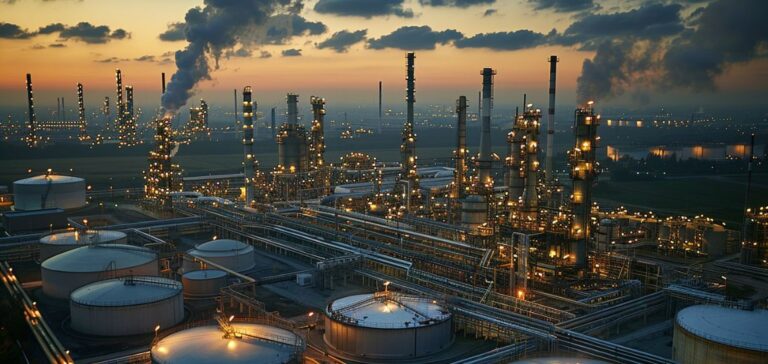Global oil demand is set to experience significant growth in 2025, according to the International Energy Agency (IEA). In its latest report, the organization estimates that consumption will rise by 1.1 mb/d, reaching nearly 104 mb/d. However, this projection is more cautious than that of the Organization of the Petroleum Exporting Countries and its allies (OPEC+), which forecasts demand reaching 105 mb/d.
Non-OECD Countries Driving Growth
Most of this increase will come from non-OECD economies, which are expected to see a 2% annual growth rate. India, followed by China, will be the main contributors to this trend, while OECD member countries are projected to resume a structural decline in demand after a slight increase in 2024.
The rebound in consumption is also supported by relatively low oil prices. Despite a brief $8 per barrel surge in January, prices have been on a downward trajectory, dropping by $20 over the past year and a half.
Fluctuating Production Levels
Global oil production saw a sharp decline in January 2025. Extreme weather conditions in North America affected extraction levels, while production in Nigeria and Libya also decreased. Additionally, new U.S. sanctions targeting Russia’s and Iran’s energy sectors, along with trade tensions between China and the United States, have further impacted supply.
Despite this slowdown, the IEA anticipates a gradual rebound in production in 2025. Projections indicate an increase from 103.1 mb/d in the first quarter to 105.5 mb/d by the end of the year. This rise could be driven by OPEC+, whose members are expected to inject an additional 30 kb/d into the market starting in April, in line with their planned supply adjustments.
Geopolitical Factors Shaping the Market
Oil price volatility has been influenced by major geopolitical events. In January, the announcement of a ceasefire in Gaza helped ease market tensions, limiting the surge in crude prices. At the same time, global economic uncertainties and moderate demand growth have reinforced downward pressure on prices.
The evolution of the oil market in 2025 will depend on multiple factors, including Asian demand dynamics, strategic decisions by OPEC+, and shifts in trade relations between major economic powers.





















